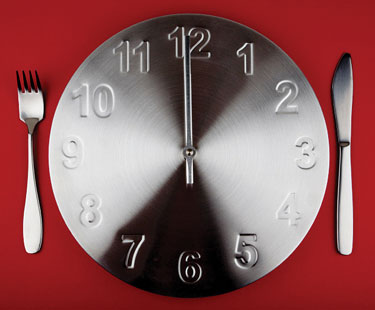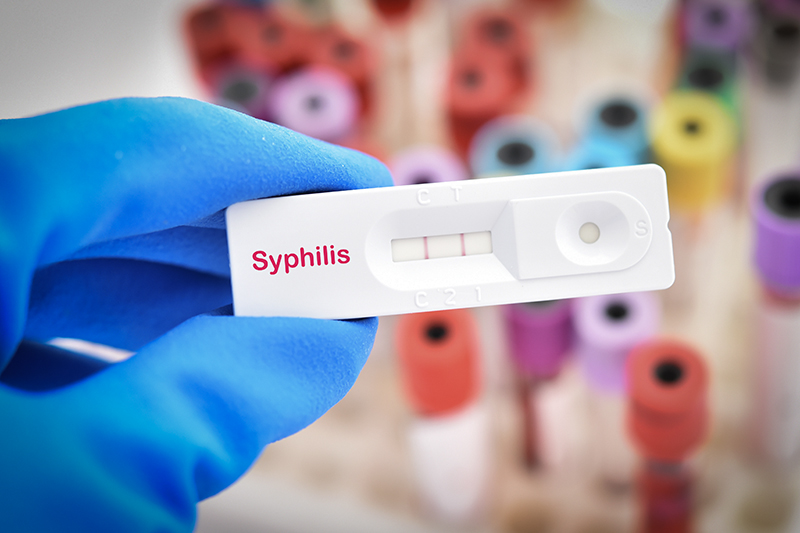The Kitchen Clock
Intermittent fasting bucks conventional wisdom, but with possibly substantial benefits
 Six small meals throughout the day: the holy grail of dieting. It has been taught and repeated, consumed and digested, as the typical go-to meal plan for shedding weight. It’s so ingrained into the idea of a healthy lifestyle that other options are rarely considered.
Six small meals throughout the day: the holy grail of dieting. It has been taught and repeated, consumed and digested, as the typical go-to meal plan for shedding weight. It’s so ingrained into the idea of a healthy lifestyle that other options are rarely considered.
One of those options, intermittent fasting, or “IF”, is quickly becoming a new powerhouse in the dieting world – and for good reason. Intermittent fasting is a basic meal protocol that has you spending a large portion of your day not eating. That part of your day is counted in hours and the most typical break down is a 16-hour fast (which includes the hours you sleep) and an eight-hour “feeding” window.
Calories are still important, and you still have to match them to your current goal, but intermittent fasting gives more benefits than typical calorie restriction, both physiologically and psychologically.
Insulin sensitivity is a major factor of weight loss, especially important in intermittent fasting. Throughout the day, your body becomes naturally less sensitive to spiking insulin making you feel hungry, and drained of energy. This is a side effect of spiking your insulin early in the morning with a large breakfast, and having a long period of time before your next meal: something six small meals a day also helps combat.
Intermittent fasting, though, helps in another way. By pushing your meals, and most importantly your carbohydrates, to the latter part of the day, you can spike your insulin when your body is naturally down-regulating it. This benefit is an even energy level throughout the day, and increased neurological health.
Studies have also shown the fat-burning benefits of fasting. At the same time your body is decreasing its insulin production, it is also depleting the main source of energy: glycogen. After eight hours of fasting, most of your glycogen is nearly depleted, and the next energy source on the menu is fat stores. At 16 hours, your body is running almost completely on the fat, and that means some serious weight loss.
On the psychological side of the spectrum, the No. 1 pitfall to dieting is falling off the proverbial wagon: binging on some of your favorite foods until you can no longer force any more in your mouth. With intermittent fasting, you get to do that, and do it every day.
Attempting to fit an entire day’s worth of calories into an eight-hour meal window means you’re getting big meals. You don’t have to cut any particular foods for this meal protocol, and things like complex carbohydrates are recommended to give you energy through some of your fast the next day. Keeping the idea simple has also shown increased adherence for most people. Stating in black and white, “Do not eat between this hour, and this hour” does not give your mind the option to wander into “I-could-have-just-a-bit-of-this” territory with your comfort foods; just save them for the feeding window.
Outside of the benefits already listed, intermittent fasting also shows some surprising, and normally unseen improvements to our bodies. Autophagy, or the processes in which the body eliminates waste material and repairs itself, are now considered common knowledge as a benefit of intermittent fasting. It not only increases autophagy of your body, reducing the signs of aging, but increases neuron autophagy as well, aiding in positive mental health. With both physiological, neurological, anti-aging, and fitness benefits, it is hard to see why fasting isn’t more widely accepted.
Because it’s a relatively new idea, compared to other meal protocols, it is still met with skepticism – though quickly gaining scientific backing. If you would like to do more reading on the basic principles, a specific protocol named “Leangains” is a gold mine of information based around intermittent fasting and its benefits.
Support Metro Weekly’s Journalism
These are challenging times for news organizations. And yet it’s crucial we stay active and provide vital resources and information to both our local readers and the world. So won’t you please take a moment and consider supporting Metro Weekly with a membership? For as little as $5 a month, you can help ensure Metro Weekly magazine and MetroWeekly.com remain free, viable resources as we provide the best, most diverse, culturally-resonant LGBTQ coverage in both the D.C. region and around the world. Memberships come with exclusive perks and discounts, your own personal digital delivery of each week’s magazine (and an archive), access to our Member's Lounge when it launches this fall, and exclusive members-only items like Metro Weekly Membership Mugs and Tote Bags! Check out all our membership levels here and please join us today!




















